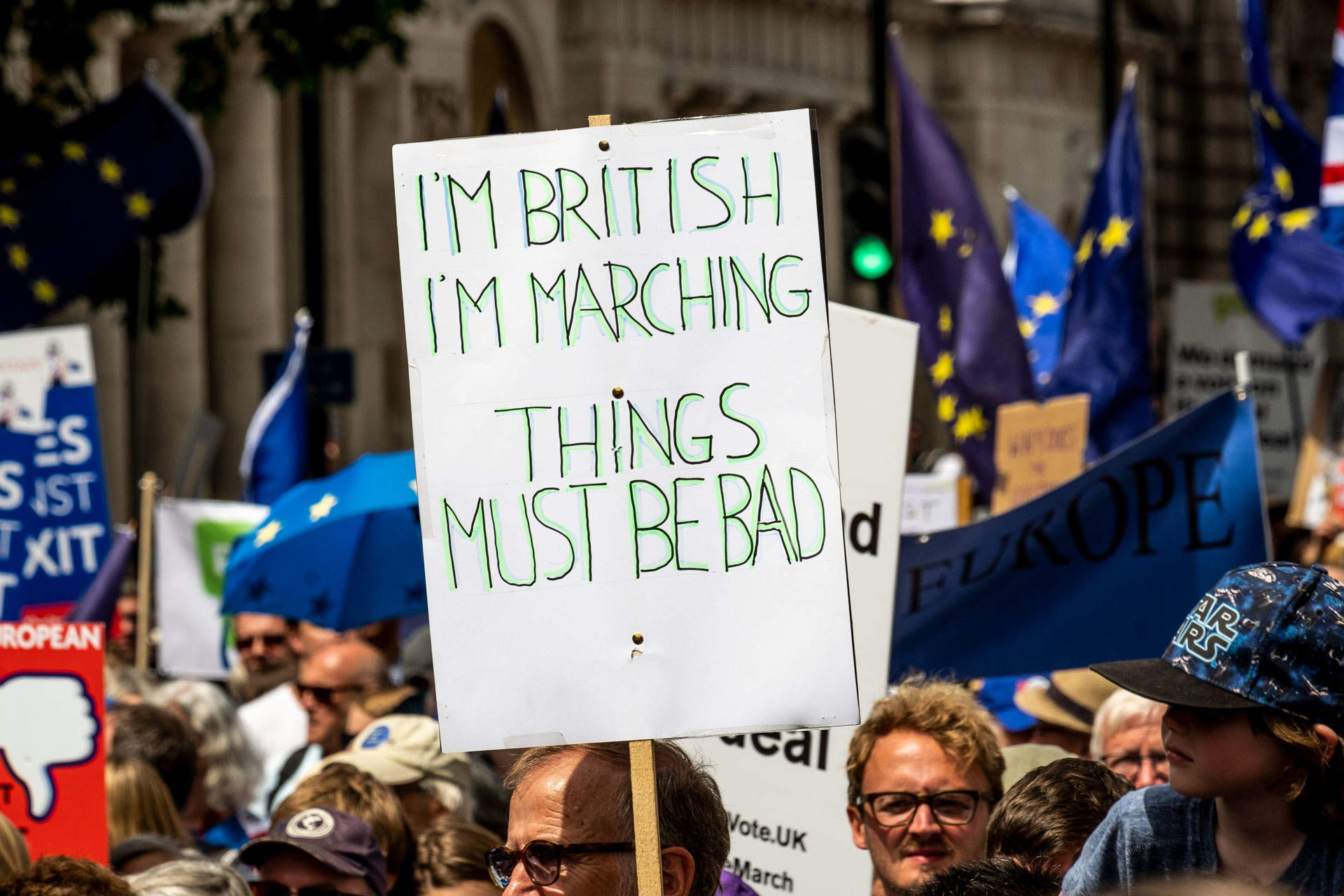
Brexit pessimism is now considerably worse than two years ago, with 31% of people expecting their standard of living to reduce, according to research by Policy Institute at King’s College London.
This is contrast to key survey undertaken just before the referendum in June 2016, which saw 25% anticipate a fall in living standards following Brexit.

Access deeper industry intelligence
Experience unmatched clarity with a single platform that combines unique data, AI, and human expertise.
The research, which was conducted in conjunction with Ipsos MORI and the UK in a Changing Europe, also found that just 14% anticipate an increase in living standards after Britain exits the European Union.
It highlighted no-deal concerns, with 44% now expecting us to leave the EU in March 2019 with any formal deal in place, in contrast to just 29% expecting the UK to leave on that date with a deal secured.
Furthermore, a significant number of people now fear for the NHS, with 34% expecting quality of NHS services to decline after Brexit. This is double the number that anticipated a decline in services in 2016.
Economic growth in the UK is also a target of concern, with 39% anticipating a decrease in the UK economic growth rate following Brexit.

US Tariffs are shifting - will you react or anticipate?
Don’t let policy changes catch you off guard. Stay proactive with real-time data and expert analysis.
By GlobalData“There are some signs of growing unease among the public since we last asked these questions just before the EU Referendum,” commented Professor Bobby Duffy, director of the Policy Institute at King’s College London.
“There has been an increase in the proportion of people expecting their own living standards to decline, and a doubling of the proportion expecting the quality of services from the NHS to decline, now a third of the public.”
Brexit pessimism along party lines
It is notable that while Brexit pessimism is afflicted many people in the UK, it is not equally impacting those of different voting preferences.
When it comes to economic growth, 64% off Remain supporters expect a drop in growth rates, while just 17% of Leave supporters anticipate the same.
Meanwhile fears of a no-deal are greater in Labour Remain supporters – at 54% – while 53% Conservative Leave supporters think a deal will happen before the March departure date.
And with overall living standards, concerns are particularly high among voters typically associated with Remain. 58% of Lib Dem supporters fear a living standards drop, while 41% of Labour supporters share the same concerns.
Accepting the reality of Brexit trade-offs
It is clear that Brexit pessimism is greater than it was before the referendum, but whether this will continue to rise remains to be seen.
For Professor Anand Menon, director of UK in a Changing Europe, it indicates a nation getting to grips with the realities of leaving the European Union.
“As the Brexit endgame approaches, knowing what the public wants and expects from the process is as important as ever,” said Menon.
“These findings indicate that the British people are coming to grasp some of the trade-offs involved in leaving the European Union. What will be fascinating in the weeks to come will be whether this carries over into attitudes on whether Brexit itself remains an attractive proposition.”







